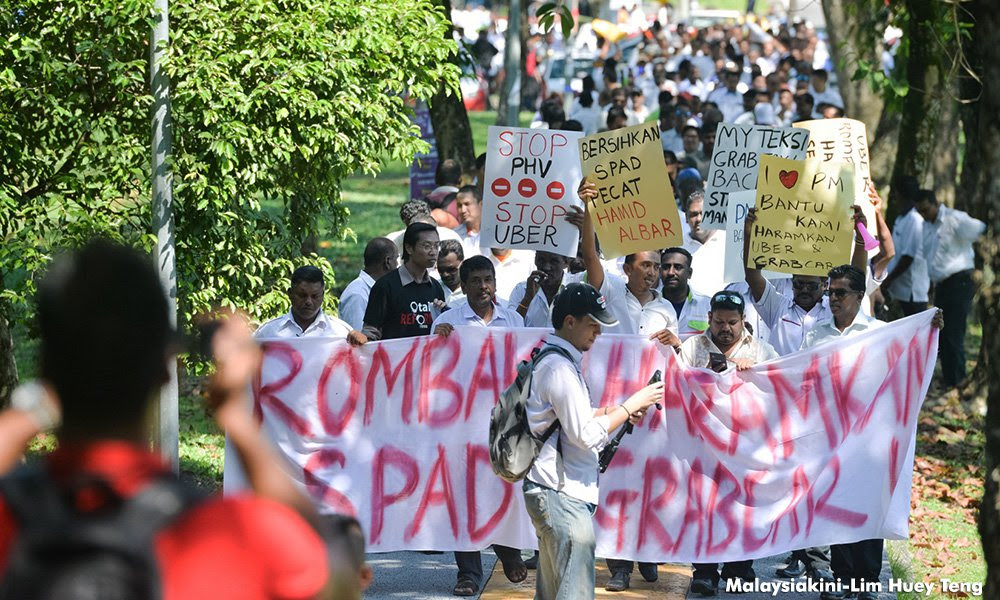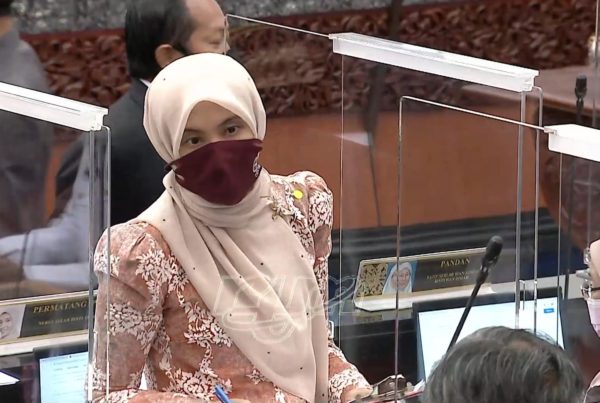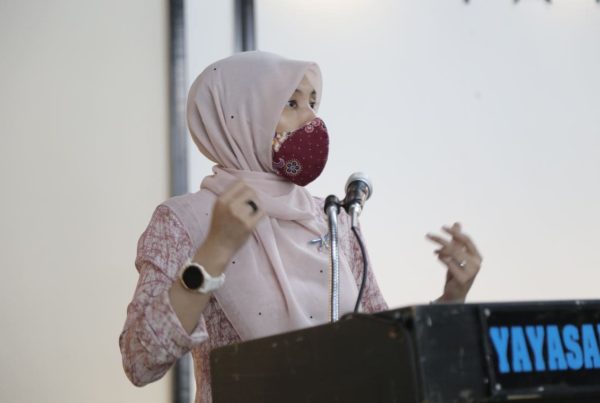This article was first published in Malaysiakini earlier today:
http://www.malaysiakini.com/news/359406
Only a few months ago, I raised the issue of the plight of rubber tappers and their hand to mouth subsistence. Now, as the debate continues on the controversy over e hailing services, we find ourselves speaking about the overwhelming financial burdens placed on Malaysia’s taxi drivers.
 The first thing to note is that Barisan Nasional’s crony capitalism and lack of focus on building Malaysia’s middle class has sustained these problems in sectors of persistent poverty, where we should have been addressing them decades ago.
The first thing to note is that Barisan Nasional’s crony capitalism and lack of focus on building Malaysia’s middle class has sustained these problems in sectors of persistent poverty, where we should have been addressing them decades ago.
One example of the BN government’s role in these problems is the system of favouritism which allows for their close linked elites to own dozens of taxi permits, and even strong allegations in some cases of thousands permits held by one party, whilst extracting profits at the expense of ordinary Malaysians. (1)
The early deliberations at Parliament yesterday included a much awaited exchange on this topic, and the controversial Uber and Grab e-hailing services which the government has confirmed to legalise in August 2016.
Yet, before this decision to legalise e-hailing services was made by government, sovereign wealth fund Khazanah Nasional had already made a show of endorsement for Uber, as it had invested in the company in 2015.
Government-linked companies play a pertinent role in the country’s economy – so how does the government expect private corporations to respect current regulations when selective collusion takes place at the whims of its GLCs?
Following the cabinet’s announcement on the legalisation of e-hailing services, public sector pension fund Kumpulan Wang Persaraan (KWAP) declared its first direct investment in a foreign company – its choice a cash injection of US$30 million (RM123.3 million) into none other than Uber Technologies.
Public trust funds should leverage their investments for the benefit of community; they should be socially responsible and not compromise pockets of our local economy.
The August 2016 decision by the cabinet to legalise e-hailing taxi services came hand-in-hand with the announcement of the Taxi Industry Transformation Programme (TITP).
Although the services offered by Uber and Grab are well-received by the overall Malaysian society, this decision came as a heavy blow to taxi drivers.
While we should accord Malaysian consumers the right to freely access their ride of choice – be it e-hailing services or conventional taxis, the government cannot in good conscience allow the existing punitive system that has victimised taxi drivers for decades to persist any longer.
For years, the taxi industry in Malaysia has remained down-trodden, with the livelihoods of taxi drivers compromised by the government imposed heavy punishing fees, which include:
1. Most taxi drivers can only rent licences, therefore paying a substantial rental fee regularly just to keep their jobs. As of March 2016, there were 39,000 taxi drivers operating in the Klang Valley, with 75 percent of these drivers only able to rent company-owned licences. In other words, only a quarter of our taxi drivers enjoy the autonomy of owning individual taxi licences. This Malaysian-style pajak (taxing) system is equivalent to modern day slavery, no less.
2. Taxi drivers are not able to operate freely. At hotspots such as hotels, airports and train stations, it is often necessary for taxi drivers to pay for coupons before picking up customers – taxing their income further. On the other hand, Uber and GrabCar drivers come and go as beckoned, without incurring further costs.
3. MyTeksi, which first poised itself as a taxi-hailing application, underwent rebranding and merged with Grab last year – subsuming private car services and now overshadowing its original taxi services. During this process, which diminished the significance of taxis, the Land Public Transport Commission (Spad) showed no objection.
I have attempted using the three main services – taxis, Uber and GrabCar.
Evidently, the convenience to hail a ride from any location, the upfront fixed pricing and lower fares, have convinced many Malaysians to make the transition from taxis to e-hailing services. At this day and age when the surging cost of living has become the priority concern of Malaysian society, this choice is understandable and rational.
Duty of gov’t to facilitate taxi industry
However, it is the duty of the government to facilitate our taxi industry to stay competitive in an increasingly technology-centric economy.
It is after all, the government that created a system allowing companies to own the vast majority of taxi permits, thereby compromising the rights of individual drivers. Imagine the ongoing abuse and profiteering that has persisted these years at the expense of struggling taxi drivers!
Certainly, the legalisation of Uber and Grab has been followed with Spad’s proposal of the TITP. But the list of ostensibly ‘transformative’ policies to improve the livelihood of taxi drivers has not been subjected to due process.
The Land Public Transport Act 2010 is to be amended to require e-hailing companies to be incorporated in Malaysia and be subject to local laws and taxes.
However, in Parliament yesterday, Minister Nancy Shukri confirmed that the amendment to the Land Public Transport Act 2010 will only be tabled during the next parliamentary session.
Thus, before this amendment is even legislated, drivers offering Uber, Grab or other e-hailing services can already apply to Spad for “driver cards” that would validate their legal status among the community of cars for hire.
There are two questions that we must raise.
Firstly, why is it that the Land Public Transport Act 2010 is not legislated before allowing the registration of drivers for e-hailing services under Spad?
Secondly, why are taxi drivers only given an artificial boost under the guise of the TITP, whereas Uber and Grab are soon to be protected under an amendment to the Land Public Transport Act 2010? The TITP is merely a programme – not an act of Parliament – which the government is not obliged to comply with.
It is therefore not surprising that the new TITP programme is not well-received by its most important stakeholders – the taxi drivers themselves.
Certainly, the government should remain flexible to allow citizens of Malaysia to enjoy the benefits of Uber and Grab. But this can only be done once the government rectifies the broken modern-day slavery system imposed on ordinary taxi drivers.
Uplifting the welfare of taxi drivers does not benefit only our taxi drivers; ensuring a thriving taxi industry is in the interest of the entire Malaysian society.
If our taxi drivers are crowded out of our economy, a monopoly of private e-hailing companies will give Uber and Grab the freedom to hike their fares with no consequence.
My message to Minister Nancy Shukri is simple – embracing new age e-hailing services begins with ending the practise of modern day slavery.




